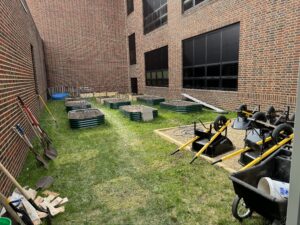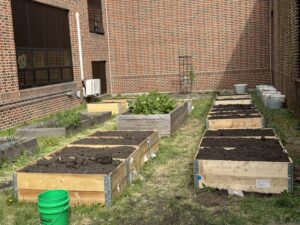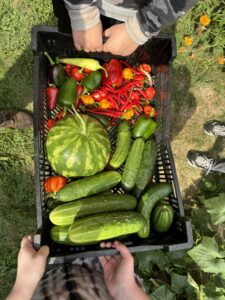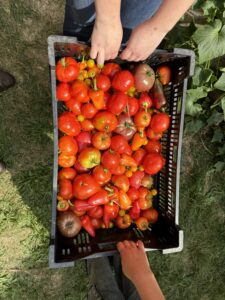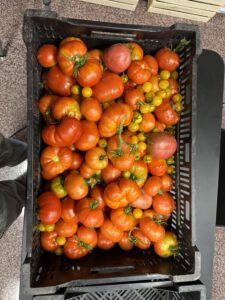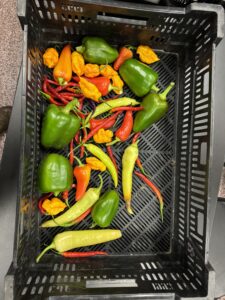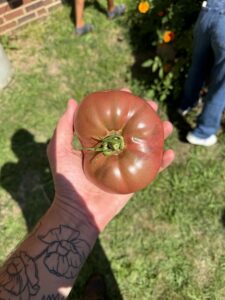Final report for YENC24-221
Project Information
Through the development of a community garden, we will showcase Sustainable Agriculture through a lens of Urban Agriculture. Students will be at the center of designing and maintaining the community garden that will be located in a food desert within our city. Students will learn how Urban Agriculture and Sustainable Agriculture work hand-in-hand through reduced food miles, composting, biodiversity and green spaces, water conservation, and the social benefits of urban agriculture.
- Design and develop an urban farm/community garden that uses sustainable farming practices and produces at least 500 pounds of fruits and vegetables during the first growing season.
- Increase sustainable farming skills of 100 high school students through hands-on work sessions in an urban farm setting.
- Students and educators present project results at a city council meeting, school board meeting, and through social media.
Educational & Outreach Activities
Participation Summary:
On 60 days, students, community members, school staff, or other individuals visited the garden for tours or volunteer work. During tours, individuals walked through the garden space and were introduced to the methods of agriculture being used in addition to the mission of the space. Volunteer work took place during the summer as well as during the school year. During the school year, students volunteered during class time in addition to after school. While volunteering, students, staff, and community members planted, harvested, weeded, and performed other tasks to grow the produce.
- Other
Learning Outcomes
confidence harvesting vegetables
identifying and removing weeds
working with other individuals to accomplish a task
discussing the impact of their work on the community
During the Spring and Fall semesters of 2024, 376 students participated in different activities in the Feeding Families Garden. Students were introduced to the garden, its mission, and the need to fight food insecurity within our community. Students learned how to identify vegetable plants, determine when they were ready for harvest, and then successfully harvest the vegetables. Additionally, students learned to identify and remove weeds from the raised beds. While volunteering in the garden, students also developed skills working with their peers and were able to verbalize the impact the garden is having on their community. Students learned the importance of fresh, healthy food and how it impacts the health of a community. Five Facebook posts describe the work done in the Feeding Families Garden, and students described the role they play in the garden to the school and district administrators when they were touring the school.
Lessons were based on the demonstration of skills.
Specific curricula and lesson plans were not used.
Project Outcomes
The Freeport School District administration and Freeport High School administration have each offered their praise of the new program at our school. Administrators showcase our program when giving tours of the school building. With this additional support, we will be able to continue and grow our work.
A sixteen-year-old student stated, "I never thought I would have liked this sort of stuff. I really like to be outside and picking the produce." An eighteen-year-old student said, "I like knowing that the work I am doing is giving back to the community. I can see exactly where the produce is going and that there is a need for it. My work makes the community healthier."
Overall, I saw a lot of joy from the students, especially while harvesting. Students got excited finding tomatoes and cucumbers that were hidden amongst the vines. In one instance, a student found a tomato that was the size of both of her hands and was in awe that we were able to grow something like that.
I would like to continue our work and develop a small wash station in the space where we can do a field wash for some of the root vegetables grown.
